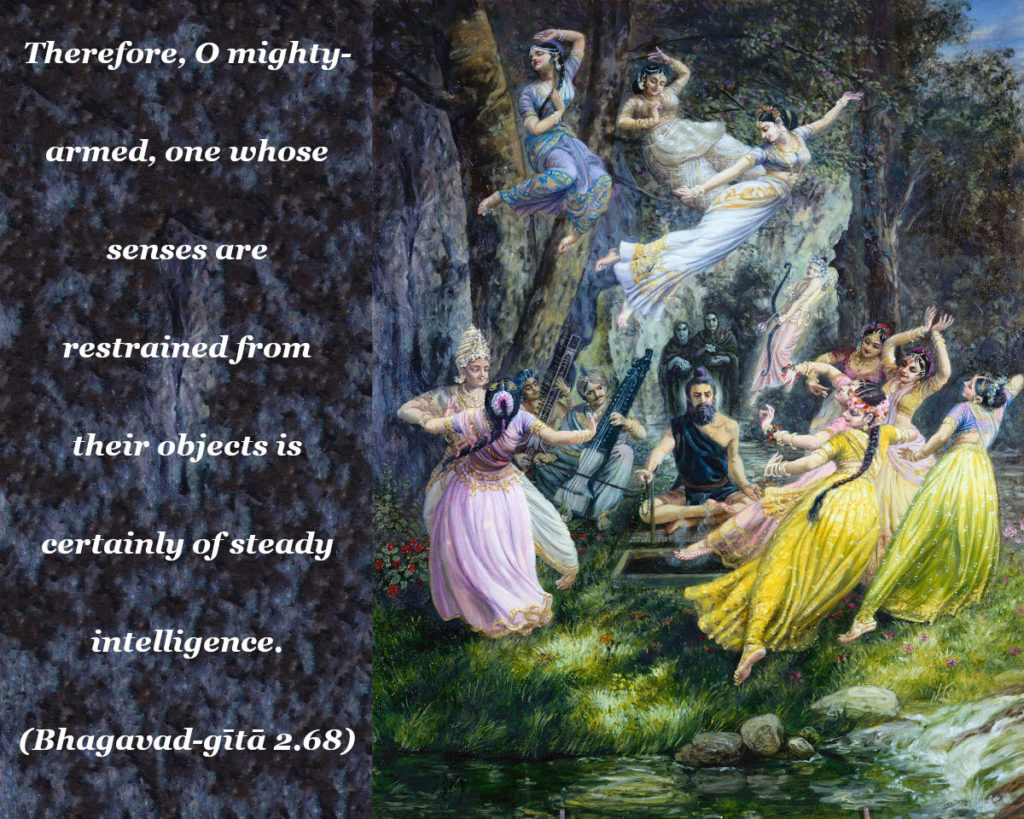तस्माद्यस्य महाबाहो निगृहीतानि सर्वश: |
इन्द्रियाणीन्द्रियार्थेभ्यस्तस्य प्रज्ञा प्रतिष्ठिता || 68||
tasmād yasya mahā-bāho nigṛihītāni sarvaśhaḥ
indriyāṇīndriyārthebhyas tasya prajñā pratiṣhṭhitā
tasmāt—therefore; yasya—whose; mahā-bāho—mighty-armed one; nigṛihītāni—restrained; sarvaśhaḥ—completely; indriyāṇi—senses; indriya-arthebhyaḥ—from sense objects; tasya—of that person; prajñā—transcendental knowledge; pratiṣhṭhitā—remains fixed
Translation:
Therefore, O Arjuna! his knowledge is steady whose senses are completely restrained from all sense objects.
Commentary:
It is not enough to have the senses half-restrained or partly controlled. Every effort should be made to control all the activities of the senses completely. Ceaseless vigilance and perseverance are necessary. The Lord repeatedly states that the senses should be restrained and the mind turned towards God (Atma), for spiritual life. Knowledge should be steady and firm and not wavering and flickering like a lamp placed in the open. Any gust of wind may extinguish it. So are the senses. The little lamp of wisdom is put out by the power of the roving senses, and the attractions of the sense-world. The senses should be withdrawn from the sense objects. The mind should be turned within to look into the Self. There is no use in lamenting that life is full of sorrow and suffering. The Lord is addressing such miserable mortals and is exhorting men to take to spiritual practices and overcome sorrow and delusion.
Question: Whose knowledge is steady?
Answer: The knowledge of the man who has completely controlled all the senses is firm.
